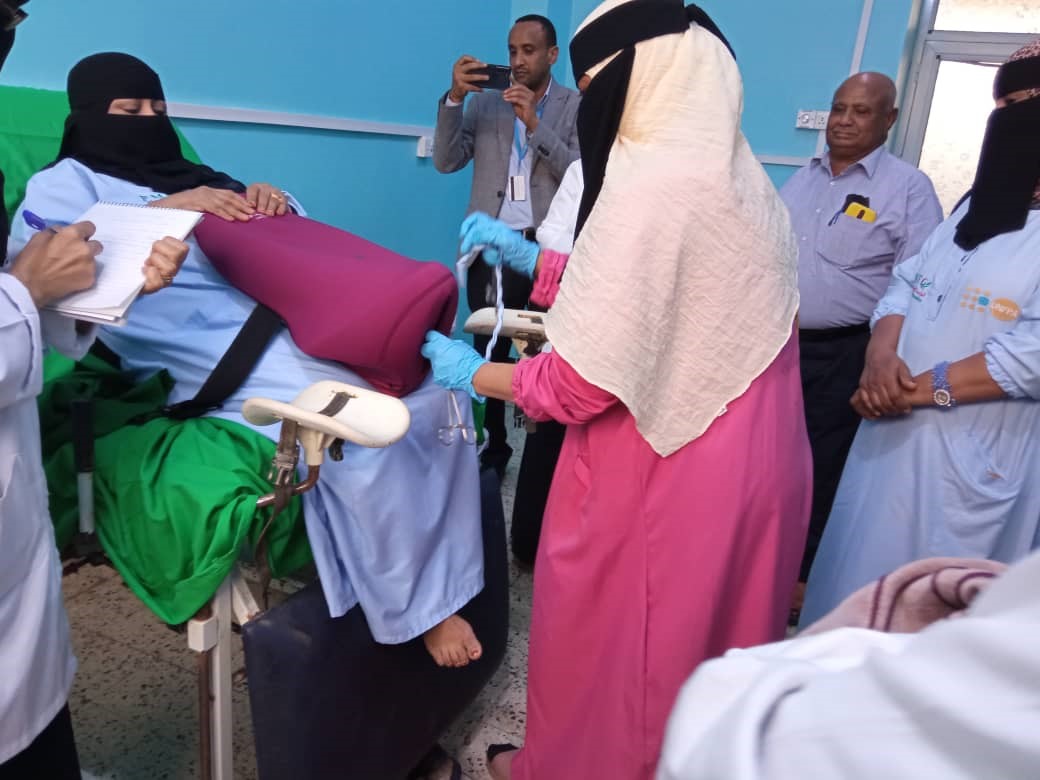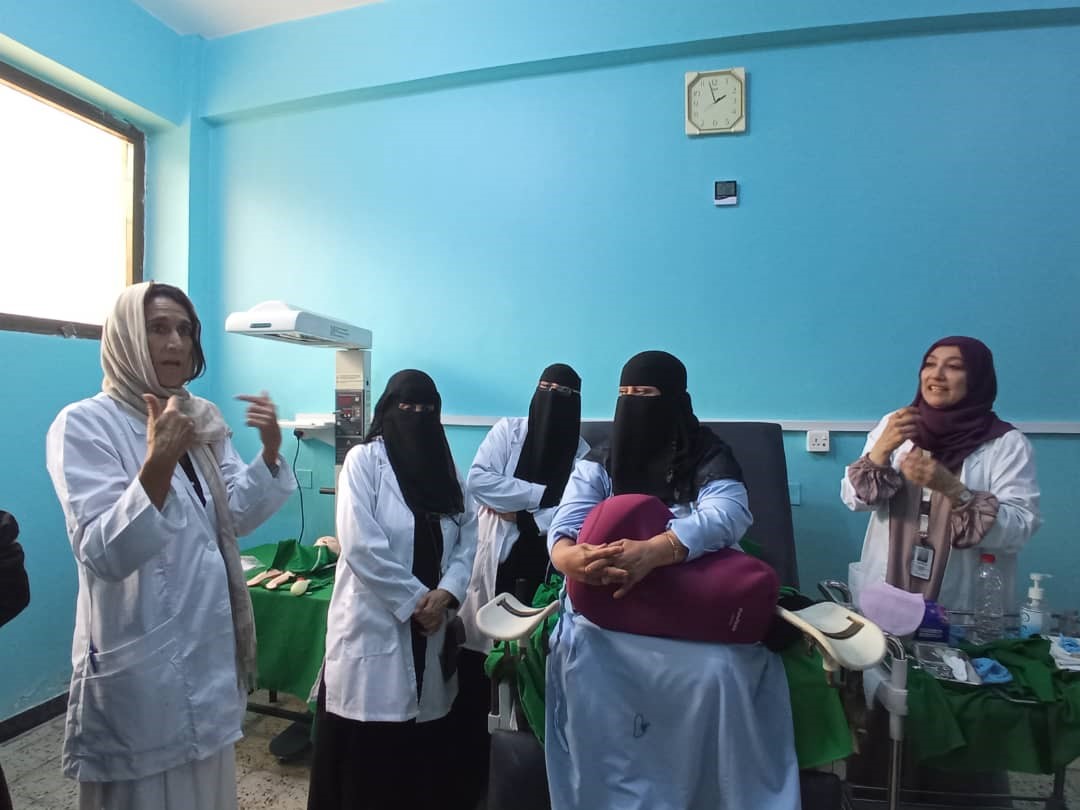 31 August 2022, Aden – The first 90 minutes of a newborn’s life are a critical window to prevent sepsis, asphyxia, and other birth complications. In these first moments, there are simple, cost-effective practices that can benefit every mother and child.
31 August 2022, Aden – The first 90 minutes of a newborn’s life are a critical window to prevent sepsis, asphyxia, and other birth complications. In these first moments, there are simple, cost-effective practices that can benefit every mother and child.
The key components are to dry the baby immediately and thoroughly after birth, to do immediate skin-to-skin contact for at least 90 minutes, to clamp the cord after pulsations stop and cut the cord with a sterile instrument, and to initiate early breastfeeding.
Other key interventions include ensuring the presence of a birth companion, adopting a position of choice, providing adequate food and fluids, using evidence-based criteria for episiotomy, avoiding unnecessary practices such as fundal pressure and forced pushing, and giving oxytocin within one minute of birth.
With the support of the World Bank, WHO and the authorities in Yemen, are providing coaching to health workers to change hospital practices and improve the quality of newborn care.
Coaching in early essential newborn care has started at Al Sadaqa, the biggest referral hospital in Aden, led by 13 facilitators, who passed their skills on to another 7 staff members, as well as 6 staff from other hospitals (Al-Sha’ab, Al-Razi and Ibn Khaldoun) and governorate newborn health coordinators.
The coaching uses on-the-job methods and immediate application in the workplace, with no lectures, presentations, or reading materials. Needed supplies were also provided to the participating hospitals, including MamaNatalies, NeonNatalies, glogerm, room thermometers, and wall clocks with digital number displays for hours, minutes and seconds.
The participants’ skills and knowledge significantly improved as measured in pre-and post-test results. Before the coaching, the participants’ scores averaged 44% in a written test, 0% for the management of a breathing baby, and 30% for the management of a non-breathing baby. After the coaching, these scores increased to 81%, 96%, and 93%, respectively.
“This is a huge step forward and a starting point for positive improvements in maternal and child health in Yemen,” said the WHO Representative to Yemen Dr Adham Rashad Ismail Abdel Moneim.
 Moving forward, plans are under way to share early essential newborn care knowledge and skills with all key staff working in the labour department, including midwives, obstetricians, pediatricians and nurses from neonatal Intensive care units, between August and October 2022. WHO has also developed a detailed staff coaching plan for the participants, with supportive supervision and review of hospital registries to measure improvements in the quality of care provided to newborns and mothers.
Moving forward, plans are under way to share early essential newborn care knowledge and skills with all key staff working in the labour department, including midwives, obstetricians, pediatricians and nurses from neonatal Intensive care units, between August and October 2022. WHO has also developed a detailed staff coaching plan for the participants, with supportive supervision and review of hospital registries to measure improvements in the quality of care provided to newborns and mothers.








